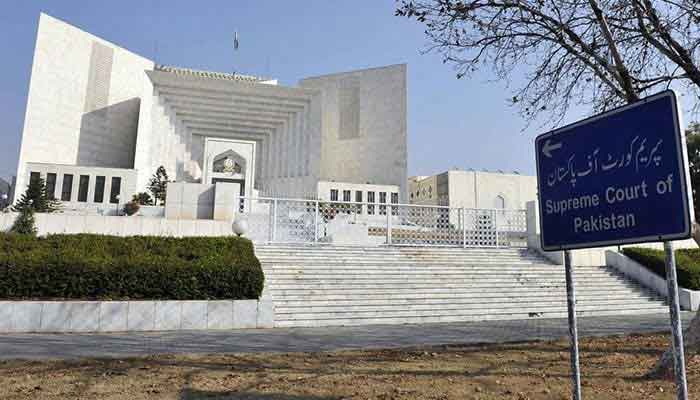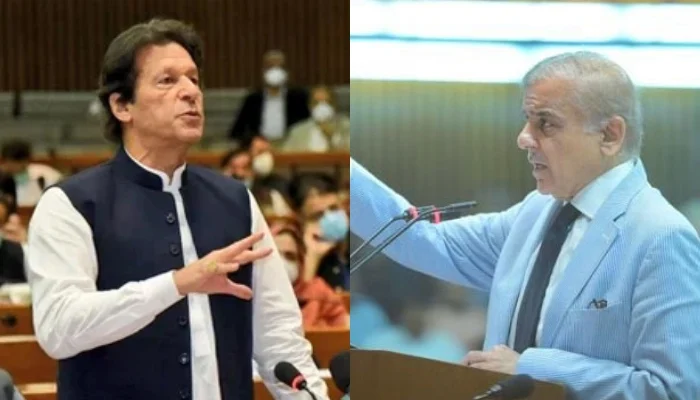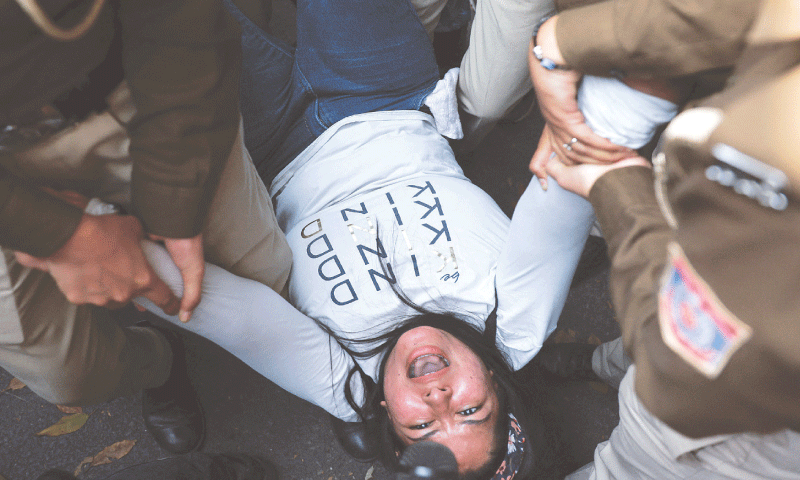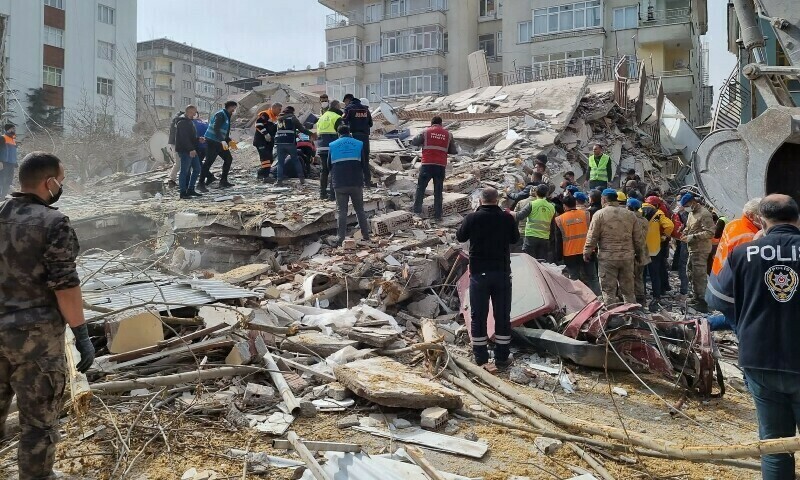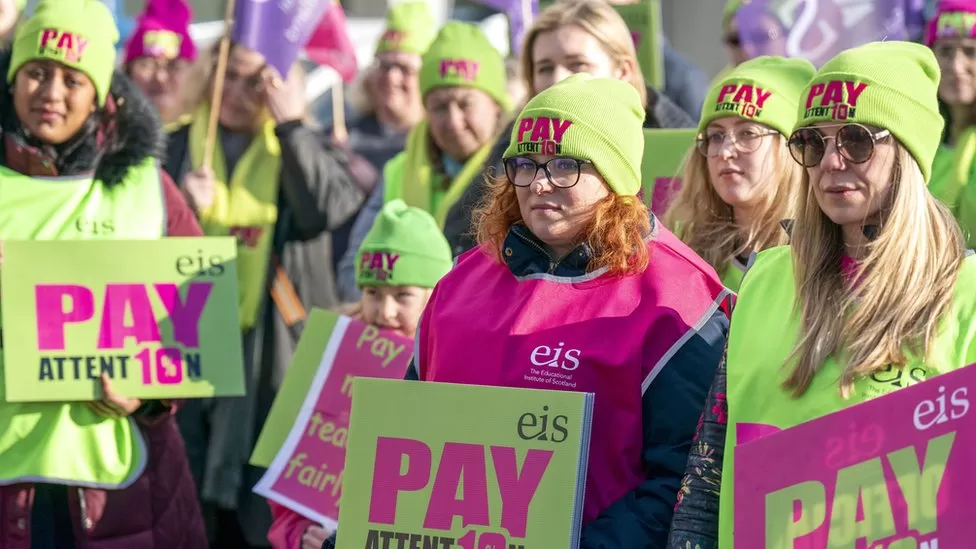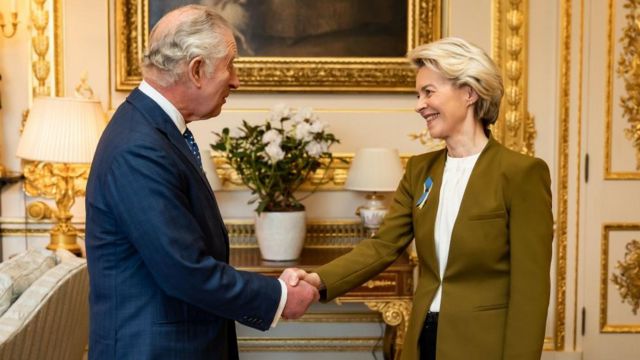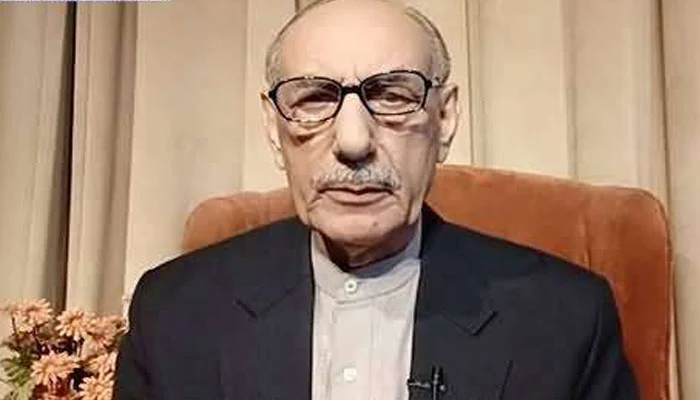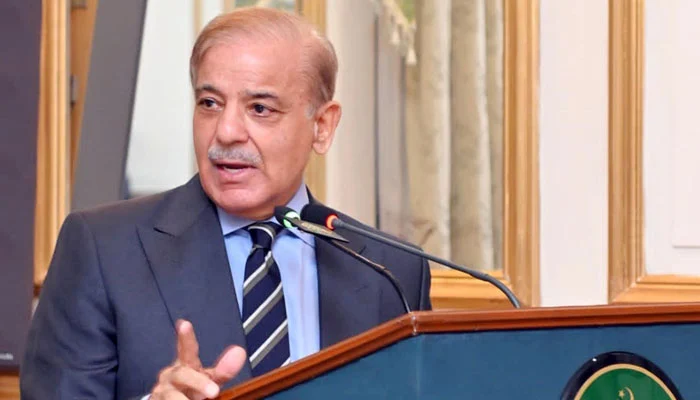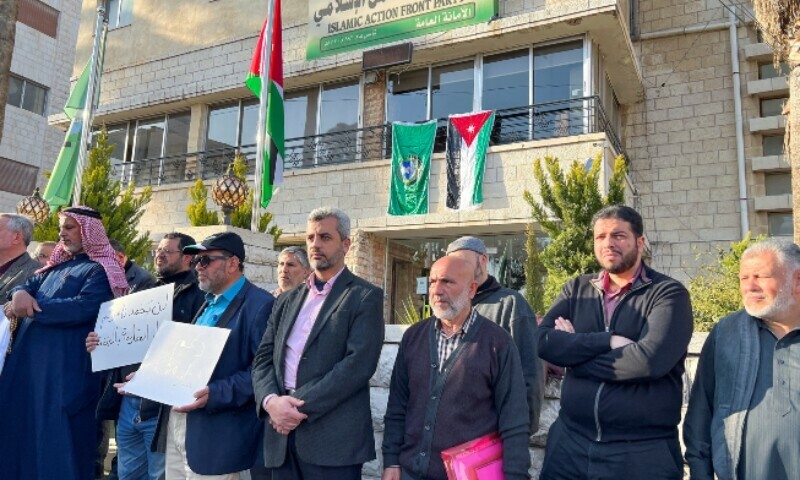Supreme Court’s (SC) Justice Mansoor Ali Shah on Tuesday questioned under what powers President Arif Alvi had set the date of the elections.
The judge passed the remark when the apex court resumed the hearing on the suo motu notice related to the elections in Khyber Pakhtunkhwa and Punjab.
A five-member bench headed by Chief Justice Umar Ata Bandial and comprising Justice Munib Akhtar, Justice Muhammad Ali Mazhar, Justice Shah and Justice Mandokhail is hearing the case.
At the outset of the hearing, attorney general for Pakistan informed the court that he was ready to give arguments.
He also raised an objection on the Supreme Court Bar Association President Abid Zuberi, saying that his name had been removed from the judicial order.
At this, CJP Bandial said that the court sees the SCBA as an institution.
“What is written in the court is not part of a judicial order. It becomes an order when the judges sign it,” he remarked.
After this, Zuberi started his arguments.
“Supreme Court has declared it in the past that the elections should be held in 90 days,” Zuberi stated.
At this, Justice Mandokhail remarked that the presidents and governors were bound to follow the Cabinet’s advice as per the Constitution.
“Can the president or governors give the election date on their own,” he inquired.
Meanwhile, CJP Bandial remarked that the governor wasn’t constitutionally bound to follow anyone’s advice regarding the appointment of a caretaker government or deciding the election date.
While, Justice Mazhar added that “no one’s advice is needed where there is discretion.”
Moving on, the CJP asked that who would issue the notification for the assembly dissolution.
Responding to the question, Zuberi said that the notification for the dissolution of Punjab Assembly had been issued by the law secretary.
At this point, Justice Akhtar remarked that the 90-day period starts right after the assembly has been dissolved.
Meanwhile, Justice Shah inquired if the caretaker chief minister could advise the governor on the election date.
To this, Zuberi said that the caretaker setup and the election date is announced simultaneously.
Justice Shah asked whether the governor could reject the caretaker government’s advice?
At this, Zuberi replied that the caretaker setup’s job was to look after government affairs instead of giving a date for the polls, which is the governor’s prerogative.
While referring to the Saifullah case, Zuberi said that the 12-member bench in that case had declared the election process a must.
At this, Justice Mandokhail remarked that Article 48 of the Constitution states that every act and step taken by the president would be on the government’s advice.
CJP Bandial seconded Justice Mandokhail’s remark, saying that the deciding a date for the polls would be based on the advice under Article 48.
While, Justice Akhtar remarked that the caretaker setup is appointed after seven days of the assembly’s dissolution.
“Harmony among different clauses of the Constitution is necessary,” he added.
Meanwhile, Justice Mazhar remarked that in Punjab’s case, the ministry of law had issued the notification, not the governor.
Justice Mandokhail said that the government can still tell the governor to conduct elections, as per the Constitution.
Justice Shah wondered how could the governor refuse to conduct elections if he receives the government’s advice regarding the poll date.
Moving on, Zuberi stated that the caretaker setup was established in Punjab on January 22.
“A basic question is that the governor is saying that he didn’t dissolve the assembly,” Justice Mazhar remarked.
Zuberi shared that as per Article 105(3) mentions the process of giving an election date.
Justice Mandokhail said that the government is not bound to give a date for polls.
Zuberi then complained that the date for the polls was not been announced even after so many days.
To this, CJP Bandial asked Zuberi if he was arguing that the government wasn’t fulfilling its constitutional duty.
“Holding elections within 90 days is the spirit of Constitution,” he observed, adding that the court would ask the AGP to assist it on the legal points.
Meanwhile, Zuberi contended that the president would announce a date for the polls if the duration of the assembly ends.
“I contend that fixing the date of polls is the prerogative of the president,” he added.
At this, Justice Mazhar remarked that a 52-day margin would be kept whenever the governor gives the date.
Meanwhile, Justice Mandokhail remarked: “President’s powers have not been stated directly by the Constitution.”
“The action will be taken as per the law if the Constitution doesn’t have the powers,” he said, adding that the laws are based on the Constitution.
Meanwhile, Justice Shah inquired under which law the president was “writing the letters”.
At this, Zuberi said that the president had written the letters for consultations.
To this, the judge replied that the Constitution does not state anywhere about holding consultations.
” If we assume that the law allows the president, even then he is bound to [follow] the advice,” Justice Mandokhail remarked.
Meanwhile, Justice Shah said that the caretaker government can also ask for deciding a date.
At this, CJP Bandial remarked that the court would decide if the president needed consultation or not, after hearing the other parties in the case.
Zuberi argued that the governor wasn’t bound to follow the advice for announcing the date of election. The same authority as the governor has been given to the president, he added.
“The president either is not bound to [follow] the advice,” Zuberi said while wrapping up his arguments.
Justice Shah remarked that the governor was bound to follow if he was advised to decide an election date.
After this, the AGP Shehzad Ata Elahi started his arguments.
“The president can give a date for the election only in case of the dissolution of National Assembly,” he said. He added that the other scenario on which the president can give date for elections is when polls are being conducted countrywide.
At this, CJP Bandial remarked that the president’s powers to make a decision at discretion and on advice had a difference.
AGP Elahi then argued that that the ECP wouldn’t follow the orders if the governor tells it to hold the election a day after the assembly’s dissolution.
At this, Justice Akhtar remarked that the governor had to keep the Election Act in view as well.
The AGP remarked that the elections should be held in 90 days and the duration shouldn’t be prolonged.
At this point, the court adjourned the hearing for half an hour.
The suo motu notice
The SC had taken the suo motu notice of an apparent delay in the elections of the two assemblies, on February 23, following President Arif Alvi’s announcement of date of polls, a move that drew strong criticism from the government
As per the CJP, the suo motu notice had been taken to assess who was eligible to issue the date for polls and who had the constitutional responsibility of conducting elections and when.
A nine-member bench was constituted to hear the case but the bench was reconstituted after four judges of the bench recused themselves.
The judges that recused themselves were Justice Ijaz Ul Ahsan, Justice Sayyed Mazahar Ali Akbar Naqvi, Justice Athar Minallah and Justice Yahya Afridi.
A written order was also issued on the SC’s website in which dissenting notes of Justice Afridi, Justice Minallah, Justice Jamal Khan Mandokhail and Justice Syed Mansoor Ali Shah had been included.
In the previous hearing, Chief Justice Umar Ata Bandial said that the parliament has clearly written in the Elections Act, 2017, that the president can announce the date for polls.
CJP Bandial had said that the hearing will be wrapped up today.


